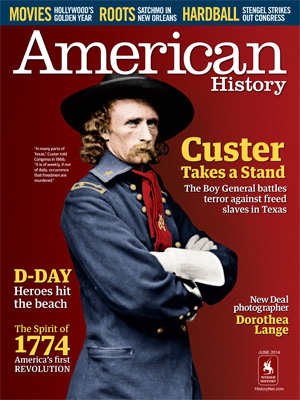How did Woodrow Wilson become America's most hated president?
By Paula SpanA chorus of conservative pundits portray Wilson as the man at the helm when everything began to go wrong for America
The Pulitzer Prize–winning columnist George Will made a startling assertion when he took the podium last year at a banquet sponsored by the Cato Institute, the libertarian think tank in Washington, D.C. "I firmly believe that the most important decision taken anywhere in the 20th century was where to locate the Princeton graduate college," Will declared.
The university's president, Woodrow Wilson, then a high-minded political scientist who'd yet to run for public office, insisted that the new residential college be integrated into the main campus. But after a lengthy and bitter academic feud, in 1910 the university's trustees and donors sided with the graduate school dean, who chose a more secluded location adjoining a golf course.
"When Wilson lost," Will told the black-tie crowd, "he had one of his characteristic tantrums, went into politics and ruined the 20th century."
The audience chortled and applauded, but Will was only half-joking. Wilson left Princeton for a new career as a crusading politician, and after soaring to national prominence during a short stint as Democratic governor of New Jersey, in 1912 he became the only scholar with a Ph.D. ever elected president of the United States. In his first term he pushed through a flurry of Progressive Era economic and regulatory reforms, and during the second he was hailed abroad as "the savior of humanity" after America and its allies had won World War I. Wilson remains a top-10 perennial on historians' lists of outstanding presidents. But as the centennial of his ascension to the White House nears, he has also become a target for an increasingly raucous chorus of conservative pundits who portray him as the man at the helm when everything began to go wrong in America.
Will whimsically refers to Wilson as "The Root Of Much Mischief." Others are less subtle or circumspect. They blame Wilson for things he did, like creating the FederalThe Pulitzer Prize–winning columnist George Will made a startling assertion when he took the podium last year at a banquet sponsored by the Cato Institute, the libertarian think tank in Washington, D.C. "I firmly believe that the most important decision taken anywhere in the 20th century was where to locate the Princeton graduate college," Will declared.
The university's president, Woodrow Wilson, then a high-minded political scientist who'd yet to run for public office, insisted that the new residential college be integrated into the main campus. But after a lengthy and bitter academic feud, in 1910 the university's trustees and donors sided with the graduate school dean, who chose a more secluded location adjoining a golf course.
"When Wilson lost," Will told the black-tie crowd, "he had one of his characteristic tantrums, went into politics and ruined the 20th century."
The audience chortled and applauded, but Will was only half-joking. Wilson left Princeton for a new career as a crusading politician, and after soaring to national prominence during a short stint as Democratic governor of New Jersey, in 1912 he became the only scholar with a Ph.D. ever elected president of the United States. In his first term he pushed through a flurry of Progressive Era economic and regulatory reforms, and during the second he was hailed abroad as "the savior of humanity" after America and its allies had won World War I. Wilson remains a top-10 perennial on historians' lists of outstanding presidents. But as the centennial of his ascension to the White House nears, he has also become a target for an increasingly raucous chorus of conservative pundits who portray him as the man at the helm when everything began to go wrong in America.
Page: 1 2 3 4 5 6

No comments:
Post a Comment